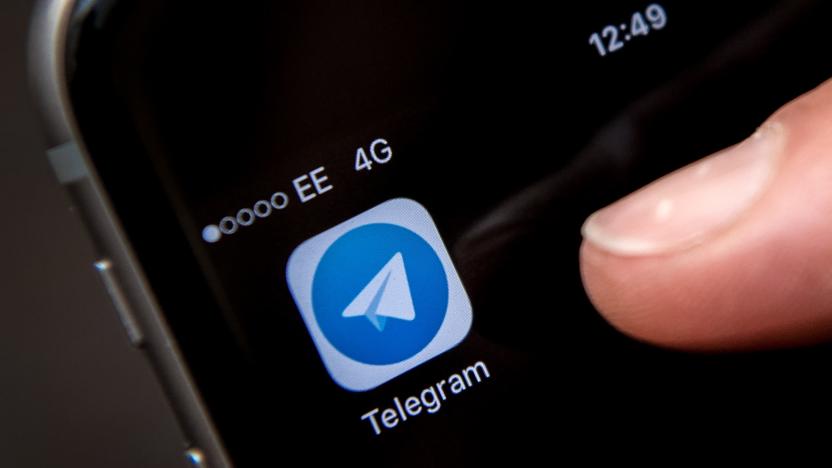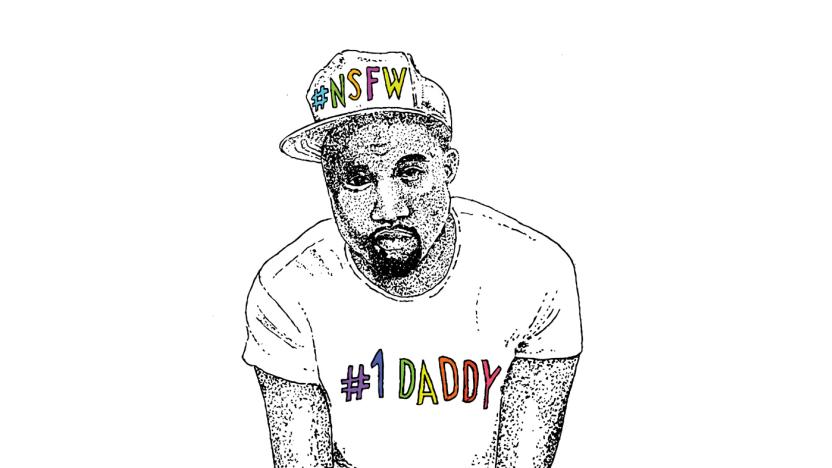FreedomOfSpeech
Latest

Afghanistan won’t ban WhatsApp or Telegram after all
Last week, reports circulated that the government of Afghanistan was aiming to enact a ban on popular encrypted messaging apps WhatsApp and Telegram. The Ministry of Communications and Information Technology sent letters to private telecommunications companies asking them to disable the apps, and copies of those letters quickly began making the rounds on social media. That caused a hefty amount of pushback from the public and spurred some to question the stability of citizens' freedom of expression. However, as Reuters reports, the Afghan government has now stated that there will not be a ban on either messaging service.

Russian censorship law bans proxies and VPNs
It's going to be much harder to view the full web in Russia before the year is out. President Putin has signed a law that, as of November 1st, bans technology which lets you access banned websites, including virtual private networks and proxies. Internet providers will have to block websites hosting these tools. The measure is ostensibly meant to curb extremist content, but that's just pretext -- this is really about preventing Russians from seeing content that might be critical of Putin, not to mention communicating in secret.

Kanye West, incest and Twitter's First Amendment conundrum
NSFW Warning: This story may contain links to and descriptions or images of explicit sexual acts. On Nov. 11th, 2014, Kim Kardashian's ass broke the internet. Her iconic posterior, photographed by Jean-Paul Goude, graced the cover of Paper magazine and became an instant meme. Like a pillow-y flesh bomb, Kardashian's butt exploded into a firestorm of praise and disgust. The New York Times warned of the perils of a massive ass, while social networks and daytime talk shows teemed with hot takes about the young mother's butt.

Supreme Court: online threats must be intentional to be illegal
You can't be sent to prison for kinda sorta threats in the real world, and that now applies to the internet as well. The US Supreme Court has overturned the conviction in Anthony Elonis v. United States on the grounds that online threats aren't illegal unless they're clearly intentional -- not just that a "reasonable person" would see them as hostile. When Elonis raged against his ex-wife and the government through allegedly "therapeutic" rap lyrics on Facebook, the court says, it wasn't absolutely certain that he actually wished harm. The man isn't out of the woods yet (a lower court has to look at the case once again), but there's now a higher standard for putting him behind bars.

Charlie Hebdo printing a million copies with help from Google
Charlie Hebdo will not stop skewering politics and religion alike despite the horrific January 7th attack that killed 12 people, including many of its staff and two policemen. Instead, the Paris-based journal will publish a million copies of its next edition on January 14th, compared to a normal printing run of around 50,000. It'll probably sell out, given a spontaneous display of unity and support for freedom of speech displayed by French protesters. To make the run possible, the government kicked in almost €1 million ($1.2 million), while French newspapers pledged €250,000 ($296,000). Google's Press Innovation Fund added another €250,000 and the Guardian Media Group contributed £100,000 ($150,000). The paper is also asking the public to subscribe at a reduced rate or make a donation.

Search engines allowed to block political websites in the name of 'freedom of speech'
When a search engine is hauled before a judge, it's often because somebody, somewhere, objects to a particular search result. However, in the case of eight New Yorkers who tried (and failed) to sue China's biggest search engine, Baidu, it was the exact opposite: The plaintiffs were pro-democracy activists who accused Baidu of de-listing their articles and videos for political reasons. They argued that this censorship breached their civil and equal protection rights, because American users of Baidu were unfairly blocked from accessing their work. After three years of wrangling, a US District Court judge has now dismissed the case on the basis that no owner of a search engine should be forced to list specific websites, because this would breach the owner's right to freedom of speech.

Twitter warned by Indian government to kibosh inflammatory tweets
India's in the midst of a security crisis and has asked Twitter to curtail "inflammatory messages" or prepare to face legal action, according to the Times of India. The country has shut down numerous websites, while Google and Facebook have already pledged to remove any threatening content. Officials reportedly said that Twitter "failed to cooperate" in efforts to curb messages or help the government find their source, despite an earlier pledge by the social network to censor content when a country demanded it. Indian ISPs have started blocking the service's accounts, according to TNW, but not Twitter itself, as the site first reported. In any case, the country still has a long way to go to catch the censorship leader.

Internet Defense League forms with support of EFF and Mozilla, bills self as 'bat signal' of the web
It looks like the Dark Knight Rises hysteria is affecting more than just spoiler-averse fans. Billing itself as the "internet's bat signal," the newly formed Internet Defense League is a collective of companies, websites and non-profit groups-- including the EFF, Mozilla, Reddit and WordPress -- banding together to nip future SOPAs and PIPAs in the bud. The IDL will officially launch today, and according to its website it's enlisting web denizens to sign up and "broadcast an action" when net freedoms appear to be under threat. The League is really milking that Batman metaphor to full effect; it will broadcast its logo, a cat that looks plenty eager to tackle all foes of speech, into the sky in five cities around the world, including, interestingly, Ulan Bator, Mongolia.

Twitter to begin 'reactively' censoring tweets in specific countries, still no love for China
It's no secret that certain countries have different views over freedom of expression on the internet, but this hasn't stopped Twitter's attempt to keep its service running in as many places as possible. In its latest blog post, the microblogging service announced that it'll begin "to reactively withhold content from users in a specific country" when required, in order to keep said content available to all users elsewhere (as opposed to blocking it globally). The withheld tweets will be marked accordingly while their authors get notified with reasons where possible, and internet legal rights monitor Chilling Effects will also post the relevant take-down notices on a dedicated page.This may seem like some form of censorship taking over Twitter, but the company only mentioned those of "historical or cultural reasons" like the ban of pro-Nazi content in France and Germany; so it's not clear whether Twitter will also handle similarly with tweets that potentially lead to events such as the UK riots last year. Even though Twitter didn't elaborate further for Reuters, there is one reassuring line in the post: "Some [countries] differ so much from our ideas that we will not be able to exist there."One such country is most likely China, and back at AsiaD in October, Twitter CEO Jack Dorsey told us that there's simply no way for his company to work with the Chinese government (you can watch him answering us at 38:17 in the video -- courtesy of All Things D -- after the break): "The unfortunate fact is we're just not allowed to compete in this market, and that's not up to us to change. The person to ask is trade experts between both governments, but at the end of the day we can't compete. They (Chinese microblogging platforms) can compete in our markets, and we're certainly interested in what that means for us... We would love to have a strong Twitter in China, but we'd need to be allowed to do that."There are obviously many factors that add up to this sour relationship, but the contradiction between China's strict internet monitoring policy and Twitter's core values is most likely the biggest obstacle. And of course, the Chinese government would favor its home-grown tech properties, anyway. That said, several months ago, one of the country's largest microblogging services Sina Weibo was criticized by the authorities for not censoring fast enough, so it's obvious that it'd be even trickier to work with a foreign company that sees things differently. Things are unlikely to change any time soon, or ever, unless China relaxes its policy.

UK Gov wants opt-in system for adult material, imagine a boot stamping on a trackpad, forever
Looks like Prime Minister David Cameron's not content with just shuttering the internet during social unrest (whilst condemning others who do the same). He's declared that four of the UK's biggest ISPs have entered into an opt-in system for adult material. The move is backed by the Mothers Union but has been flatly denied by the ISPs, who insist they're offering McAfee parental controls with new signups rather than Government-level web filtering. (Probably a massive let down to those eagerly waiting to delegate their parental responsibilities.) Of course, given the flaky nature of web filtering, any sanguine word that contained an expletive (the word "arsenal", for example) could be impossible to access until you had an awkward conversation with someone over the phone.

Wiretapping Act could spell 'finito' for Italian Wikipedia
This week, lawmakers in Italy are debating a controversial new bill that could have disastrous implications for Wikipedia. Yesterday, the encyclopedia posted a lengthy letter on its Italian portal, informing visitors that the site may be shuttered within the country if parliament passes the proposed DDL Intercettazioni, or "Wiretapping Law." If ratified, the legislation would require all online publishers to amend any content considered objectionable or defamatory within 48 hours of receiving a complaint. Offenders would face a fine of €12,000 (about $16,000), and any requested corrections would not be subject to review. Of course, this presents obvious problems for the crowdsourced (and crowd-edited) Wikipedia, which characterized the law as "an unacceptable restriction of [its] freedom and independence." The site took particular umbrage at the bill's apparent disregard for third-party review, pointing out that the "opinion of the person allegedly injured is all that is required" to force a re-write, "regardless of the truthfulness of the information deemed as offensive, and its sources." At the moment, the portal is still up, but masked by Wikipedia's letter. If the Wiretapping Law progresses further, however, the organization says it will have no choice but to delete its Italian platform altogether. [Image courtesy of Toutlecine]

UK teen arrested for illegal BBM, social media crackdown gains steam
Lending further gravity to the proposed crackdown being bandied about in British parliament, an Essex teen has been arrested for sending a BBM that ran afoul of the Serious Crime Act of 2007. The 18-year old, now free on bail, allegedly used the service to encourage copycat attacks of the violent rioting that's swept London, and is set to appear in court on September 1st. It's the second known case to put RIM's private messaging service -- "popular among urban teenagers" as a cheap texting alternative -- in the UK's legal hotseat. For its part, the Canadian electronics maker has since reached out to police, promising to aid the investigation "in any way [it] can." Although no decision has yet been made to extend law enforcement's powers over social media services, such as Twitter and Facebook, arrests like these seem to indicate a murky free speech future.

UK Prime Minister exploring social media crackdown in wake of London riots (video)
As Londoners continue to pick up the rubble and carnage from this week's riots, UK Prime Minister David Cameron is exploring new ways to maintain order -- including, apparently, a government crackdown on social media. In a speech to members of Parliament today, Cameron made clear his belief that law enforcement officials should be able to curb and monitor the use of social networking sites under certain circumstances, lending credence to the theory that mechanisms like Facebook, Twitter and BlackBerry played a critical role in inciting the recent violence: "Free flow of information can be used for good. But it can also be used for ill. And when people are using social media for violence we need to stop them. So we are working with the Police, the intelligence services and industry to look at whether it would be right to stop people communicating via these websites and services when we know they are plotting violence, disorder and criminality." There's a fine line separating issues of national security from the rights to free speech, but it's a line that Cameron seems willing to toe. And, though he and his Conservative government are only mulling the idea, it's difficult to ignore the irony in his statements. Keep in mind that this is the same man who roundly condemned Hosni Mubarak for shutting down Egypt's internet at the height of its revolution, calling for the now-ousted leader to fully respect the "freedom of expression and communication, including use of telephones and the internet." Cameron, of course, isn't calling for anything nearly as drastic as what Mubarak orchestrated, nor is he facing anywhere near the same level of domestic turmoil. But the fundamental narrative remains the same: in the face of social upheaval, a national leader instinctively reaches for a digital muzzle as a stop-gap measure, while (perhaps) ignoring the larger, longer-term ramifications of his actions. Fortunately for the UK, though, Cameron is already doing one thing that Mubarak apparently never did -- he's thinking about right and wrong. Head past the break to see Cameron's speech, in its entirety.

Tim Berners-Lee entreats us to keep the net neutral, standards open, and speech free
We've always thought pretty highly of this Tim Berners-Lee fella, and now we've got a whole essay penned by him to show you why that is. In a six-page treatise on the current state of the web, Tim discusses why universality of access is so important to our freedom of speech and other democratic liberties, why open standards will always prevail over closed ecosystems (with a special critique of Apple's iTunes and concordant appification of the web), and also why it's necessary to distinguish between the web and the internet. Oh, and he also manages to squeeze in one of the most succinct explanations of net neutrality and its growing importance in our massively interconnected world. Hit the source for the full shot of enlightenment. [Image courtesy of Paul Clarke]

The internet earns a nomination for 2010 Nobel Prize
Isn't Italy a place of contrast? After the country's judiciary slammed Google for failing to keep a tight enough leash on user-uploaded content, we're now hearing that its local version of Wired magazine is putting forward the internet as a candidate for the Nobel Peace Prize in recognition of its contributions to "helping advance dialogue, debate and consensus." Right then. Just in case you think this is all a bit silly -- and you should -- we're also hearing Nicholas Negroponte and 2003 Nobel laureate Shirin Ebadi are both in support of the idea, which has been described as "a Nobel for each and every one of us" by Internet for Peace, an organization set up specifically to promote the web's candidacy. That's a pretty succinct way of putting it, but it also shows what's wrong with the idea: nothing devalues a prize's worth and meaning quite like handing it out to everyone. Just imagine icanhascheezburger.com slapping a legitimate Nobel laureate badge up on its homepage and you'll know what we mean.









